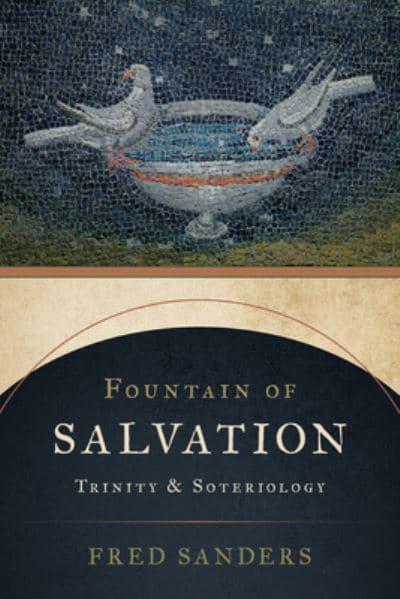
A trinitarian exposition of Christian soteriology
The relation of God and salvation is not primarily a problem to be solved. Rather, it is the blazing core of Christian doctrine, where the triune nature of God and the truth of the gospel come together.
Accordingly, a healthy Christian theology must confess the doctrine of the Trinity and the doctrine of salvation as closely related, mutually illuminating, and strictly ordered. When the two doctrines are left unconnected, both suffer. The doctrine of the Trinity begins to seem altogether irrelevant to salvation history and Christian experience, while soteriology meanwhile becomes naturalized, losing its transcendent reference. If they are connected too tightly, on the other hand, human salvation seems inherent to the divine reality itself. Deftly navigating this tension, Fountain of Salvation relates them by expounding the doctrine of eternal processions and temporal missions, ultimately showing how they inherently belong together.
The theological vision expounded here by Fred Sanders is one in which the holy Trinity is the source of salvation in a direct and personal way, as the Father sends the Son and the Holy Spirit to enact an economy of revelation and redemption. Individual chapters show how this vision informs the doctrines of atonement, ecclesiology, Christology, and pneumatology--all while directly engaging with major modern interpreters of the doctrine of the Trinity. As Sanders affirms throughout this in-depth theological treatise, the triune God is the fountain from which all other doctrine flows--and no understanding of salvation is complete that does not begin there.
The relation of God and salvation is not primarily a problem to be solved. Rather, it is the blazing core of Christian doctrine, where the triune nature of God and the truth of the gospel come together.
Accordingly, a healthy Christian theology must confess the doctrine of the Trinity and the doctrine of salvation as closely related, mutually illuminating, and strictly ordered. When the two doctrines are left unconnected, both suffer. The doctrine of the Trinity begins to seem altogether irrelevant to salvation history and Christian experience, while soteriology meanwhile becomes naturalized, losing its transcendent reference. If they are connected too tightly, on the other hand, human salvation seems inherent to the divine reality itself. Deftly navigating this tension, Fountain of Salvation relates them by expounding the doctrine of eternal processions and temporal missions, ultimately showing how they inherently belong together.
The theological vision expounded here by Fred Sanders is one in which the holy Trinity is the source of salvation in a direct and personal way, as the Father sends the Son and the Holy Spirit to enact an economy of revelation and redemption. Individual chapters show how this vision informs the doctrines of atonement, ecclesiology, Christology, and pneumatology--all while directly engaging with major modern interpreters of the doctrine of the Trinity. As Sanders affirms throughout this in-depth theological treatise, the triune God is the fountain from which all other doctrine flows--and no understanding of salvation is complete that does not begin there.



